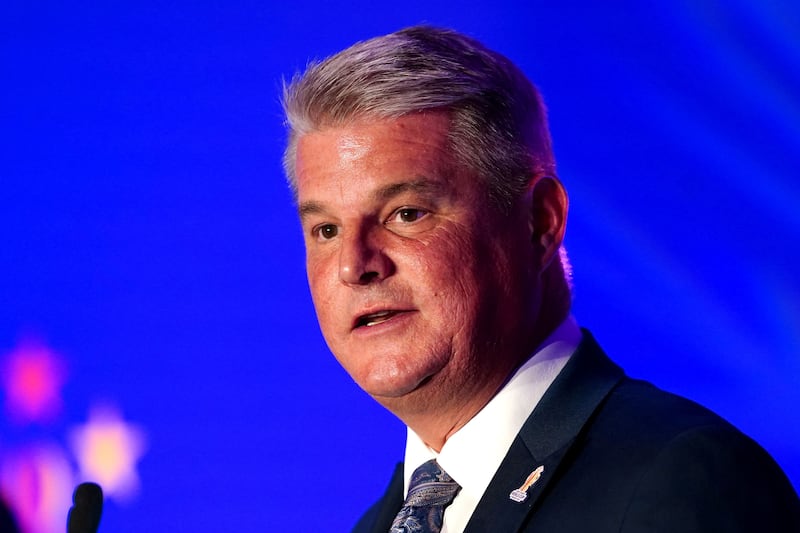A promise to ban conversion therapy has “lingered in the lobby of good intentions for far too long”, Sir Keir Starmer said as he committed to a draft Bill to legislate against such practices.
The Government said its Conversion Practices Bill will deliver on a manifesto commitment to bring forward a “full, trans-inclusive ban on conversion practices”.
A ban on conversion therapy, which aims to suppress or change a person’s sexual orientation or gender identity, was first promised in 2018, by former Conservative prime minister Theresa May.
It was later downgraded under Boris Johnson’s leadership not to include transgender people, but the Conservative government under Rishi Sunak said in January 2023 that it would ban conversion therapy for “everyone”, including transgender people.
This did not come to pass, with the Tories saying legislation around such practices “is a very complex issue, with existing criminal law already offering robust protections”.
On Wednesday, announcing that work will begin on a ban, Sir Keir said it was “a promise that has lingered in the lobby of good intentions for far too long”.
Former Conservative health secretary Victoria Atkins previously warned that this could be “ripe territory for the law of unintended consequences”, with concerns around the potential for criminalising people who are trying to support those with “gender distress”.
The new Labour Government has said its Bill, for England and Wales, “must not cover legitimate psychological support, treatment, or non-directive counselling” and “must also respect the important role that teachers, religious leaders, parents and carers can have in supporting those exploring their sexual orientation or gender identity”.
It said the Bill will propose new offences covering practices not captured by existing legislation.
It said: “The Government wants to ensure that the criminal law offers protection from these abusive practices, while also preserving the freedom for people, and those supporting them, to explore their sexual orientation and gender identity.
“This will mean those providing medical care and support are in no way impacted by this Bill.”
📢 We welcome the UK Government’s commitment to #BanConversionTherapy in the #KingsSpeech.
We’ve campaigned relentlessly to ban these abusive practices. Now, we need a comprehensive bill with no loopholes and no delays.https://t.co/ER1HbfGn6O
— Stonewall (@stonewalluk) July 17, 2024
Labour referred to research by LGBT+ anti-abuse charity Galop in 2022 which said trans people are “significantly more likely to be subjected to conversion practices”.
The Government has insisted there is cross-party and cross-society consensus to see conversion practices banned, and pledged to “work closely with everyone and bring everyone with us” in developing legislation.
News of the draft Bill was welcomed by LGBTQ+ campaigning organisation Stonewall, which said: “Each day that these abusive practices remain legal, our communities are put at risk”.
Noting the six-year wait since a ban was first promised, the organisation called on Labour to “urgently publish a comprehensive Bill to ban these abhorrent practices once and for all”.
But LGB Alliance, a charity formed in recent years to support the rights of same-sex attracted people, voiced concerns about whether, in the case of those questioning their gender, any new legislation “would make it illegal for a therapist to ask a young person to consider why they want to change their body”.
Dr Roman Raczka, president-elect of the British Psychological Society, said any new legislation “must be very clear that it will not prevent ethical forms of therapy, which are non-directive and non-judgmental” when it comes to people wanting help in exploring their sexual orientation or gender identity.
He added: “The Government must make an explicit distinction between so called ‘conversion therapy’ and normal ethical practice.”
Conservative MP Sir Julian Lewis suggested “well-intentioned” laws could result in punishing “thought crime”.
The MP for New Forest East said he wanted to leave a question “hanging in the air”, telling the Commons: “Anybody who votes for this change needs to be able to answer this point – what is it that you’re proposing to outlaw that isn’t already forbidden under existing laws?
“The danger with well-intentioned laws of this nature is that you can end up in a situation where what you’re really talking about is thought crime, and 75 years after George Orwell’s 1984 was published – or maybe it’s 76 years now, technically speaking – we need to be wary of that.”
Sir Julian said he disagreed with a constituent who is “fanatically opposed” to abortion and wants to “pray internally” while standing on the pavement near an abortion clinic.
But the MP added: “He’s in a position where, if he’s asked by the police what he is doing, if he says, ‘I’m thinking about my shopping list’ or ‘I’m thinking about some other domestic issue’, he’s fine, but if he actually admits he is praying in relation to the abortion issue he could end up being accused of committing an offence.
“Be careful before you go down that road too far.”









